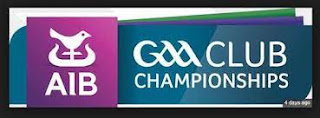Club Hurling Championship {,More than just a game}
Club Championship
The Hurling Club Championship is ran by the Gaelic Athletic Association each year with the best 2 teams in Ireland getting the chance to play in a final in Croke Park . The club season usually starts from March and goes right through to January if your team is successful enough. The trophy for winning the All Ireland Club Championship is the 'Tommy Moore' cup and it is what every team dreams of lifting.
Structure
Different counties have different ways of structuring their club championship. Some like the idea of knockout games because of the thrill of knowing that both teams have to be on their best form or else they are out whereas other counties make the championship longer by having group games so a team can afford to lose. Counties where clubs have dual players who are also competing in the Gaelic Club Championship, the club managers have to ensure that they look after the well being of the dual players, giving them as much time as possible to rest up between playing games for each code.
The team that wins their County Championship then goes into the Provincial Championship which is a knockout system. A draw usually takes place which matches the different County Champions against each other. The 4 teams that win their Provisional Championship then go into the All Ireland series where another draw takes place. Whichever teams win the two semi finals play each other in the final.
Most successful teams
The most successful club team of all time is Ballyhale Shamrocks from Kilkenny who have won the All Ireland Club Championship 8 times. The 2020-21 All Ireland didn't take place due to the Covid pandemic but they won 2 in a row in the 2018-19 season and the 2019-20 season and they will be hoping to add another one this year. They have produced some of the best hurlers of all time with Henry Shefflin and TJ Reid playing for them. It is an incredible achievement for a small rural village in the South East of Ireland. In terms of the top scorer in an all Ireland Club final, it is Liam Watson from the Loughiel Shamrocks club in Antrim who scored 3 goals and 7 points against Coolderry which was an incredible performance.
Most successful Managers
Pad Joe Whelehan is the most successful club hurling manager winning 3 All Irelands with Birr in county Offaly. Whelehan then got management jobs with inter county teams and managed Limerick from 2003 to 2005. There is 5 managers who have managed clubs to 2 All Irelands and the most notable being Henry Shefflin who managed his club team Ballyhale Shamrocks.
What it means to be part of a GAA Club & the Community behind them
For clubs throughout Ireland their GAA club is about so much more than just playing matches, the club is the heartbeat to their community and an extension to their family. The team players have often started playing together from a very young age and are best friends as well as team mates. Everyone in the club community plays their part in the All Ireland club championship, from the players to the people making sandwiches to the ground keepers, the list is endless but they all contribute and feel that they are very much part of the team. That volunteer ethos remains one of the most important aspects of the GAA.
There are over 2,200 clubs across all 32 Counties in Ireland and as a community based organisation, it is often difficult to determine where the community ends and the GAA club starts, as they are so intertwined.
AIB who sponsor the Club All Ireland produced a documentary where they swapped people in a professional sport with hurlers and it highlighted the commitment that GAA players put in for an amateur sport. All players who line out for their club have to go into work the next morning and if anything they have to pay to play the sport they love with the cost of memberships and pitch fees etc but it shows the sense of how much they want to make their community proud.
Many players look to themselves as amateur players, playing an amateur sport for the love of the sport, their county and their parish with many holding the belief that if they were to get paid it may lead to players potentially becoming greedy and lead to less passion and love for the game. There are some however that hold a different view and are calling for Gaelic to be on an even footing with other sports such as soccer where players are paid well for their commitment to the their chosen sport. This debate is likely to roll on, however the GAA are adamant that the status quo will remain.





Comments
Post a Comment